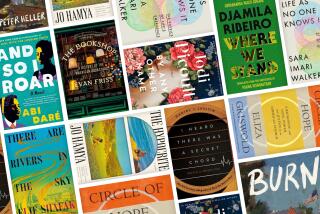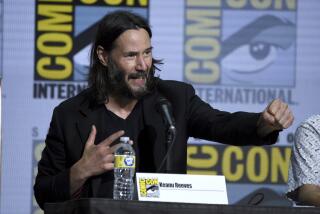The Reading Life: In praise of the novella
I’ve never been much of an Ian McEwan fan, but his post this week at the New Yorker’s Page-Turner blog may make me think again. Here, McEwan writes in defense of that finest of all literary forms, the novella: “between twenty and forty thousand words, long enough for a reader to inhabit a world or a consciousness and be kept there, short enough to be read in a sitting or two and for the whole structure to be held in mind at first encounter.”
Yes, yes, I want to say: Absolutely. I love the novella and always have. It offers the immediacy of a short story mixed with (at least some of) the depth of the novel — a slice of life, a series of moments, digestible and complex all at once.
“I believe the novella is the perfect form of prose fiction,” McEwan writes. “It is the beautiful daughter of a rambling, bloated ill-shaven giant (but a giant who’s a genius on his best days). And this child is the means by which many first know our greatest writers. Readers come to Thomas Mann by way of ‘Death in Venice,’ Henry James by ‘The Turn of the Screw,’ Kafka by ‘Metamorphosis,’ Joseph Conrad by ‘Heart of Darkness,’ Albert Camus by ‘L’Etranger.’ I could go on: Voltaire, Tolstoy, Joyce, Solzhenitsyn. And Orwell, Steinbeck, Pynchon. And Melville, Lawrence, Munro. The tradition is long and glorious.”
And yet, as McEwen notes, the novella suffers from a bad rap, a sense that it is neither here nor there. Stephen King — himself no stranger to the form — has called it “an anarchy-ridden literary banana republic … apt to make even the most stout-hearted writer of fiction shake and shiver in his boots.”
The problem, of course, is its in-between-ness, the sense that it is neither here nor there. For me, however, this is just one more aspect of its beauty, that in a sound-byte culture, one where there is often little room for nuance, the novella requires us to set aside our preconceptions, our expectations, and simply read.
“The great novella,” McEwan observes, “is Joyce’s ‘The Dead.’” He may be right, although for me, this is the sort of hierarchical thinking the novella stands against. It seems self-defeating, after all, to rank a category that is itself underappreciated, that we come to, when at all, on its own terms. No, better to read these works as part of a tradition, in which, as McEwan assures us, “[t]he architecture of the novella is one of its immediate pleasures.”
ALSO:
Joan Didion and the art of political narrative
Chris Ware ups the ante with ‘Building Stories”
Margaret Atwood on her Byliner serial and fun with dystopias [video]
More to Read
Sign up for our Book Club newsletter
Get the latest news, events and more from the Los Angeles Times Book Club, and help us get L.A. reading and talking.
You may occasionally receive promotional content from the Los Angeles Times.










